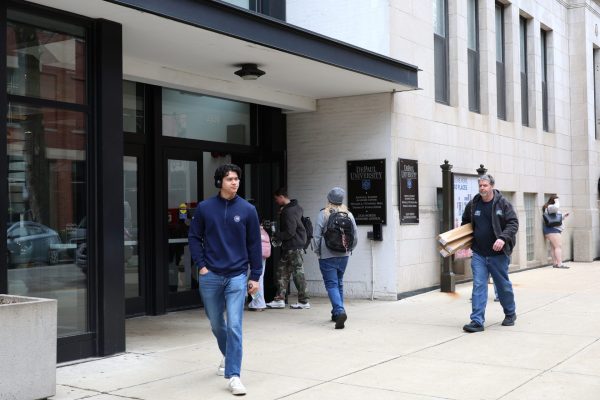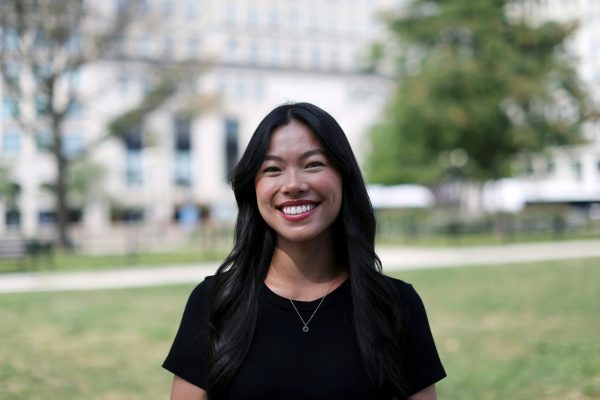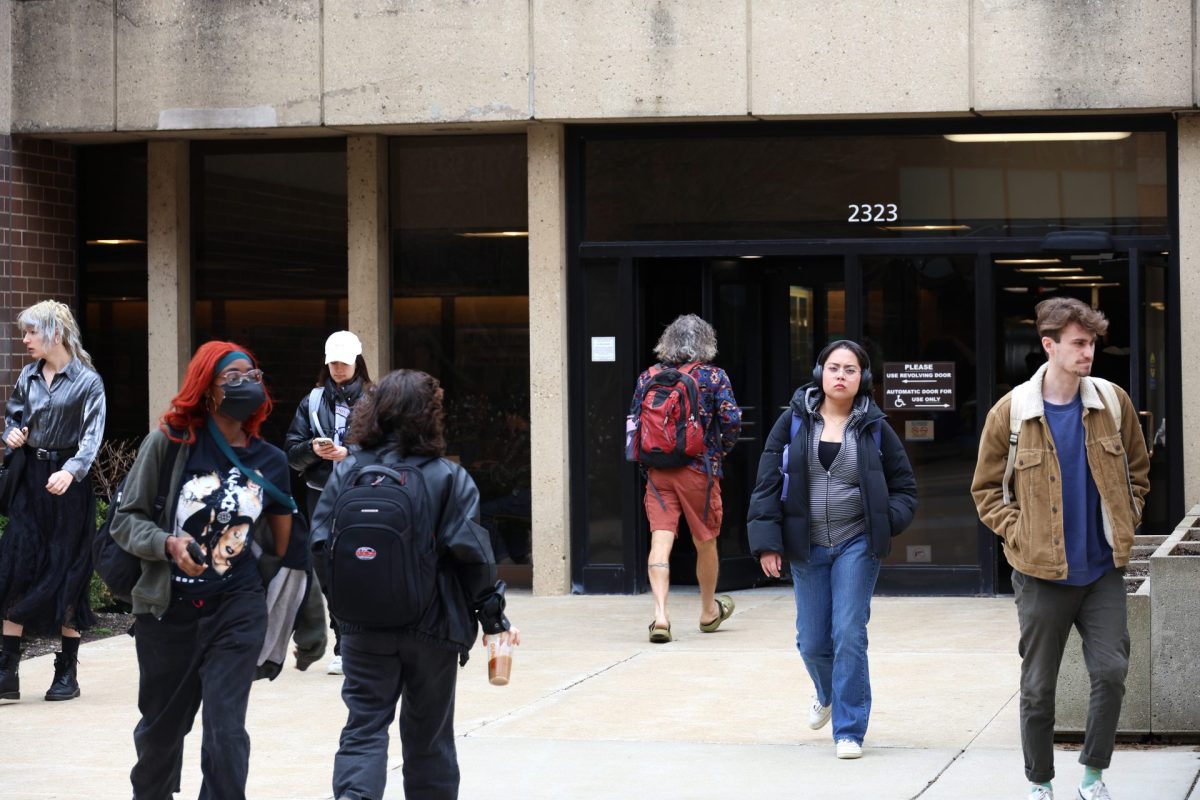The ripple effects of pandemic-era policies — relaxed attendance, online learning alternatives and lower achievement expectations — have redefined student relationships with school. For many, attending classes is no longer seen as a necessity.
“I think the reality that you can go to school without being in class sort of hit some people really hard, it’s like, ‘Well, why don’t I just not go to class,’” Tyler Grisafi, a DePaul sophomore, said. “I think that people learned that they can get away with doing the bare minimum.”
While attendance data is difficult to track at the university level, statistics about K-12 attendance confirm an increase in absenteeism that, some say, may even be impacting attitudes about spending time in the workplace once people graduate.
In the four years since Covid-19 afflicted the nation, U.S. schools have still struggled to recover, facing many challenges such as behavioral problems, learning deficits and — most notably — issues with attendance. Chronic absenteeism, defined by the Department of Education as missing more than 10% of the school year, has entrenched itself in students nationwide.
According to the Department of Education, the rate of chronic absenteeism in K-12 schools reached 31% in the 2021-2022 school year, double the pre-pandemic rate. The number only slightly reduced to 28% in the 2022-2023 school year. The numbers are even more stark in Chicago, as 40% of students in public school districts were considered chronically absent in the 2022-2023 academic year.
Although students missing more school is a trend for all demographics, the change is particularly severe for Black and Hispanic communities, especially in low-income areas, where pre-pandemic rates have doubled — from 16% to 32%.
While absenteeism is a nationwide issue, its root causes and implications vary across communities. Pre-existing disparities, such as economic instability and disrupted family structures have only deepened the shift in marginalized communities.
Reports from the World Health Organization and the CDC also reveal an uptick in depression and anxiety and other mental health concerns, post-pandemic, as well as a tendency to stay home for minor illnesses and mental health days.
That may stem, in part, from Generation Z’s efforts to destigmatize mental health conversations and promote self care.
DePaul senior Mathew Sharifi believes prioritizing mental health is more important than ever, especially in a world where conflict is constantly present.
“We get exposed to that on a consistent basis through social media and the news, which can take a toll,” Sharifi said. “I think yes, of course, prioritize mental health. We should always focus on the people — people first above all else.”
The shift is particularly evident in higher education. At DePaul, attendance policies are now subject to each individual professor’s discrepancy.
Though, the College of Communication has come up with a college-wide system for reporting and verifying extended absences.
Beyond absenteeism, students say they also disengage, even when in class. They may be physically present, but lost to their devices — shopping online during lectures, scrolling or doing homework for other classes. The belief that materials are always available online and can be learned independently has become a common sentiment among students who learned asynchronously during the pandemic.
“I remember when we were doing online Zoom classes, I would just get on the class on my laptop and then go take a nap and do absolutely nothing,” Daniel Gonzalez, a DePaul sophomore, said. “I kinda would just not be there.”
That attitude persisted when he returned to in-person classes. “You just kind of get the idea that school is optional,” he said.
These shifts pose a larger discussion: is this all temporary? Or is it a permanent shift of how the younger generation interacts with school and the workplace?
“I rarely skipped school prior to Covid,” Val Kruczek, who graduated from DePaul in 2023, said. But asynchronous lectures and recorded Zoom sessions changed that. “I knew if I missed something, like, I missed it, whereas if you had an asynchronous class and you didn’t want to deal with it, you could watch it later,” Kruczek said.
That style of learning “definitely changed the dynamic of how we exist,” she added.
Kruczek, a risk consultant at Baker Tilly accounting firm, works remotely most of the week and said full-time office attendance is rare. She believes a hybrid work schedule is ideal, providing the opportunity to build camaraderie with her co-workers. But she likes having the freedom to choose when she goes in.
“I don’t feel like I’m on a hamster wheel all the time,” she said.

Kruczek said she would feel more burnt out with an in-person only schedule.
“Getting up at 6 a.m., commuting 40 minutes to the Loop, going into the office, putting makeup on. … The social tax of it all can be draining,” she said.
While the rise of student absences has posed challenges for traditional schooling, it raises larger questions about how the education system and workforce should adapt. The issue runs deeper than attendance, snowballing into behavioral problems, learning loss and disrupted social dynamics.
Many states are still struggling to rebound from low standardized test scores, creating a relentless game of catch-up. This perpetual cycle has only furthered the inequalities between poor and wealthy districts, where standardized testing is built to favor those with greater financial resources.
Gonzalez, the DePaul sophomore, believes students need to rethink their attitudes about school — but that there’s a happy medium to be found.
“I feel like a line totally needs to be drawn,” Gonzalez said. “Somewhere between ‘you need to be in school every class period, you need to focus every class period’, and also where we are at right now, where school is almost taken as seriously as a hobby.”
As more companies adopt hybrid models, others in the working world are adding more days in the office.
Beyond the benefits of flexibility, some, like Sharifi, see remote work as an opportunity — allowing individuals with disabilities or limited access to transportation to succeed professionally.
“I think that it just opens up the door for businesses,” he said. “By offering remote positions, it diversifies the workforce more, which I think is important.”
Related Stories:
- No More Dean? DePaul’s new extended absence policy puts professors in charge
-
‘It’s not just about the money’: Trump eyes shuttering the Department of Education
delivered to your inbox every Monday.
Support Student Journalism!
The DePaulia is DePaul University’s award-winning, editorially independent student newspaper. Since 1923, student journalists have produced high-quality, on-the-ground reporting that informs our campus and city.
We rely on reader support to keep doing what we do. Donations are tax deductible through DePaul's giving page.



